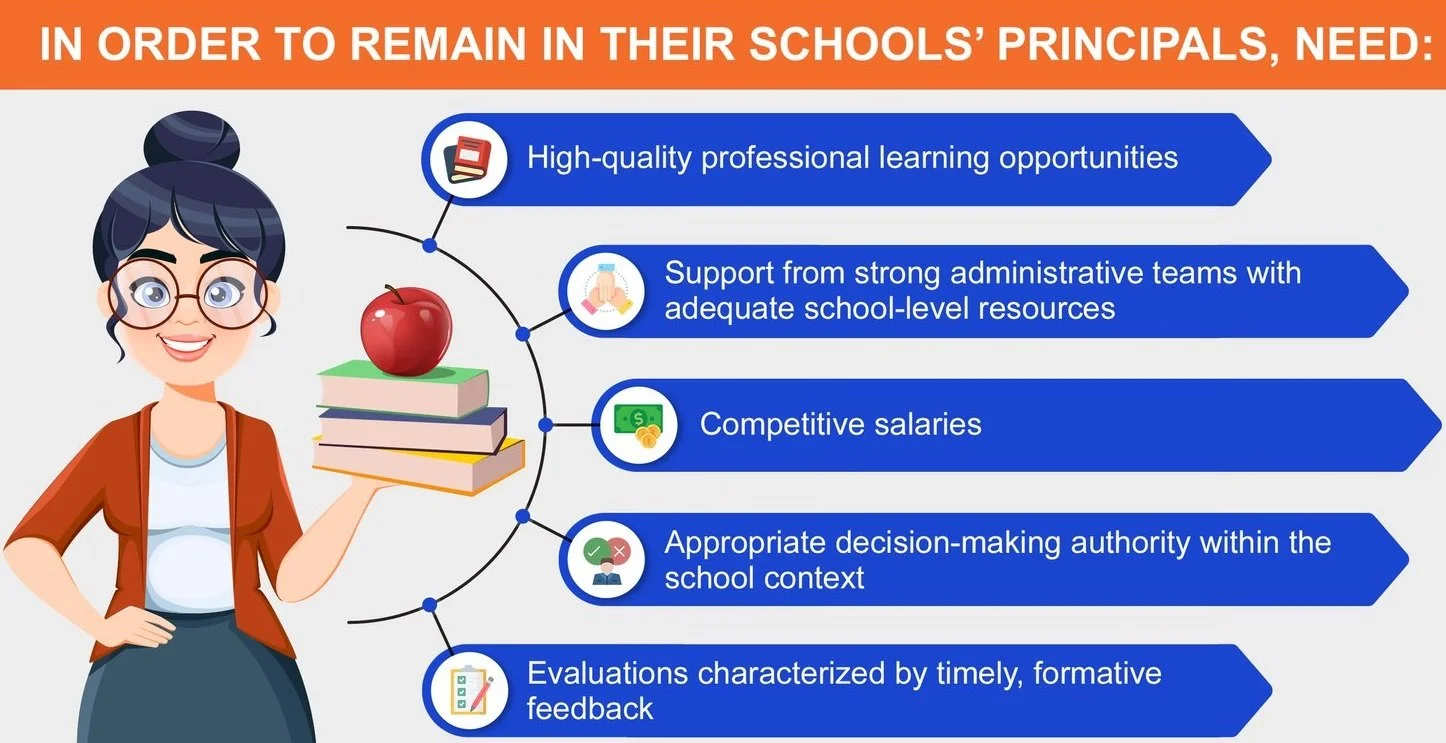This blog explores the complex relationship between teacher job satisfaction and retention, focusing on key factors such as the school environment, community, and teacher-specific characteristics. It compares teacher satisfaction in the United States and China, highlighting cultural, socioeconomic, and structural differences.
Read MoreAre you tired of seeing your best teachers leave for other schools? Consider the powerful impact of salary and benefits on teacher retention and work to advocate for both!
Read MoreAre you curious about what's really going on in the minds of your teenage students? Discover how to foster a more supportive and understanding classroom environment by understanding the underlying motivations and challenges that drive teenage behavior.
Read MoreAs K–12 principals, your role is vital in creating supportive and inclusive learning environments for all students. Check out the Multi-Tiered System of Support (MTSS) framework, which provides a comprehensive approach to ensuring equitable student outcomes.
Read MorePresidential turnover in higher education is on the rise, affecting stability and leadership effectiveness. Explore the key factors behind this trend, including the COVID-19 pandemic and political controversies. Learn how faculty can navigate these changes with practical strategies and maintain continuity in their roles. Discover insights on supporting DEI initiatives and advocating for strong governance. Stay informed and prepared for leadership transitions in your institution.
Read MoreHow did higher education transform through the COVID-19 upheaval from 2019 to 2024? What strategies did universities implement to adapt to the challenges posed by the pandemic, and what lingering effects remain? Do you think we’ve made enough of a change for our students to survive in the future?
Read MoreAre you interested in supporting disengaged learners? Try these strategies so you can move beyond traditional methods and effectively support all students, fostering their success and creating a more inclusive learning community.
Read MoreHow do new teachers navigate the transition from structured college classrooms to the diverse and often chaotic real-world teaching environments? As they step into contemporary classrooms, they're met with unfamiliar teaching styles, unexpected challenges, and the need for effective observation and adaptation. With various learning styles and teaching methods at play, how can educators ensure they're embracing the best strategies for genuine student engagement and growth?
Read MoreIn the age of Educational Innovation 360, we explore how K-12 leaders are reshaping the boundaries of learning, breaking down geographical disparities, and nurturing equity. From always-on learning resources and data-driven personalization to engaging technology-enhanced designs, discover how visionary principals are using Educational Innovation 360 to revolutionize education and create a brighter, tech-savvy future for our students.
Read MoreDiscover how principals champion digital tools to empower teachers, personalizing education for every student. Gain a fresh perspective on the exciting evolution of education in the 21st century, equipping students with vital skills for the future job market.
Read MoreAre you ready to embark on an exciting educational journey? Discover the captivating launch of Educational Innovation 360's three separate 5-week starter sprints for educators!
Read MoreLack of Qualified Teachers: One of the main reasons for teacher shortages is the shortage of qualified and trained individuals who are interested in pursuing a career in teaching.
Read MoreAs a parent I know, how I would feel if my child started off with a sub, and whether they are filling in for the long term or a couple of days- they are not capable of delivering the same instruction as a full-time teacher.
Read MoreDid you know, In Utah, you no longer need a teaching degree to teach; all you need is relevant professional experience? I’m not sure if we are ready to go there yet... let’s start by maybe increasing the teacher's salaries.
Read MoreCocurricular Activities can help address learning loss by providing students with experiences outside the classroom that apply the knowledge acquired in the classroom so why haven’t you partnered with your afterschool program?
Read MoreThe whole process of leadership in schools has made significant advances, and today the education system has been revolutionized due to technological advances so how are you transforming your school looking towards the future?
Read MoreResearch has shown that teacher collaboration can improve student achievement so why haven’t more schools started?
Read MoreMany teachers would tell you Yes, I want to be a teacher forever but that doesn’t mean that you cannot make career goals. There are many opportunities in education to try new things.
Read MoreTypically…Low-performing principals are more likely to be demoted to a lower school-level position or leave the education system entirely. In contrast, high-scoring principals are more likely to be promoted to a central office position. Is this happening in your district?
Read MoreThere are more than 55,000 children in foster care in California, about 34 percent of whom are placed with relatives so what can we do to help students in our schools?
Read More




















